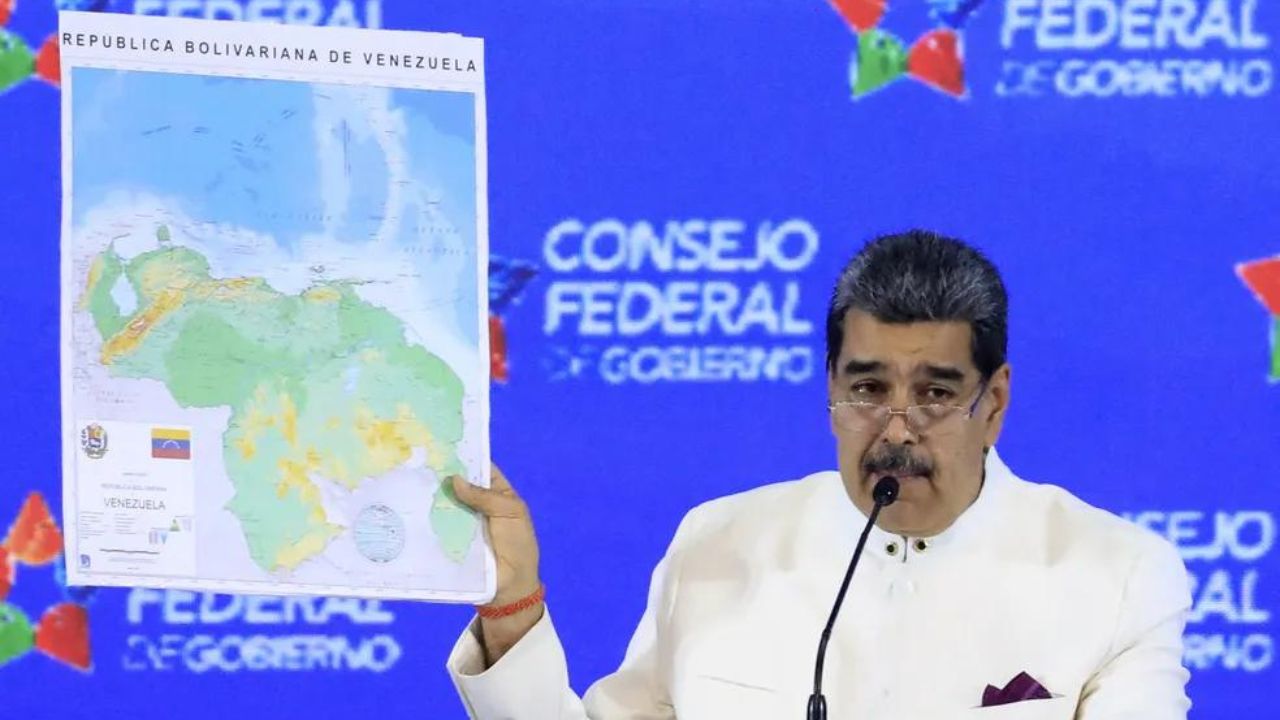President Irfaan Ali of Guyana declared, “Essequibo is ours, every square inch of it,” and sent troops to reinforce the country’s border with Venezuela. Brazil, which is a neighbor of both countries has also sent armed forces to the area. Brazilian President Luiz Inacio “Lula” da Silva expressed his concern about the situation, saying, “We are going to treat it very carefully because what we don’t want here in South America is war.” St. Vincent and Grenadines president Ralph Gonsalvez and UN Secretary General Antonio Guterres have persuaded Maduro and Ali to meet to discuss the issue, but Ali says he will not discuss the country’s borders and Maduro reiterates his claim to Esequibo.
Why is Maduro claiming Esequibo at this time?
Maduro, a virtual dictator, faces an election in 2024, and it is not clear that he could win a free and fair election. The country is racked by economic crisis, hampered by U.S. sanctions, and is experiencing mass emigration. Out of a population of 30 million in 2015, 7.7 million Venezuelans have migrated, principally to other South American countries, though almost a quarter of a million to the United States.
In the last election in 2018, Maduro won only after most opposition parties and candidates were declared ineligible, in a process riddled with irregularities, and with relatively few voters going to the polls. In 2019, conservative challenger Juan Guidó claimed to be interim president and was recognized by over 60 countries, including the United States, throwing the country into a years-long crisis, though Guidó failed to take power.
In the coming election, Maduro will face Maria Corina Machado, an economic conservative and member of the opposition party in the Venezuelan National Assembly. She won in the opposition’s unofficial primary election, in which, remarkably, 2.4 million people participated. Machado has already been disqualified from holding public office because of her support for U.S. sanctions. The U.S. government says sanctions won’t be lifted unless the opposition parties can participate in the elections.
Claiming Esequibo allows Maduro to offer the promise of economic improvement. A war would provide him with a chance to wrap himself in the flag, declare a national emergency, and postpone the elections. But he may find himself in a war not only with Guyana but perhaps also with the United States.
The U.S. Southern Command which oversees Central America, South America, and the Caribbean, is already conducting joint flight operations with the Guyana Defense Forces. Secretary of State Antony Blinken told President Ali that he could count on Washington’s support “for Guyana’s sovereignty and our robust security and economic cooperation.” Maduro has criticized Guyana for involving the United States.
Since the election of the leftist government of President Hugo Chávez in 1999, the United States has opposed Venezuela. In 2006, President George W. Bush imposed sanctions on Venezuela for its failure to cooperate in counter-terrorism and anti-drug efforts. President Barack Obama imposed further sanctions in 2014 because of Venezuelan human rights violations. The Donald Trump administration expanded the sanctions, though President Joseph Biden has subsequently moderated them, permitting the sale of oil. The U.S. recognition of Guidó as interim president was an attempt to overthrow Chavez’s successor Maduro.
Already involved in supporting Ukraine and Israel, the Biden administration would no doubt like to avoid another war. Since the discovery of enormous off-shore oil fields in Guyana, American and other foreign petroleum companies, such as Esso Exploration & Production Guyana, a descendant of ExxonMobil and Standard Oil, already have operations in Esequibo, and the oil companies have always played a large role in U.S. foreign policy.
War? Not yet. But the left must be watching, prepared to oppose U.S. involvement.
This article was originally published in Foreign Policy in Focus.



Leave a Reply